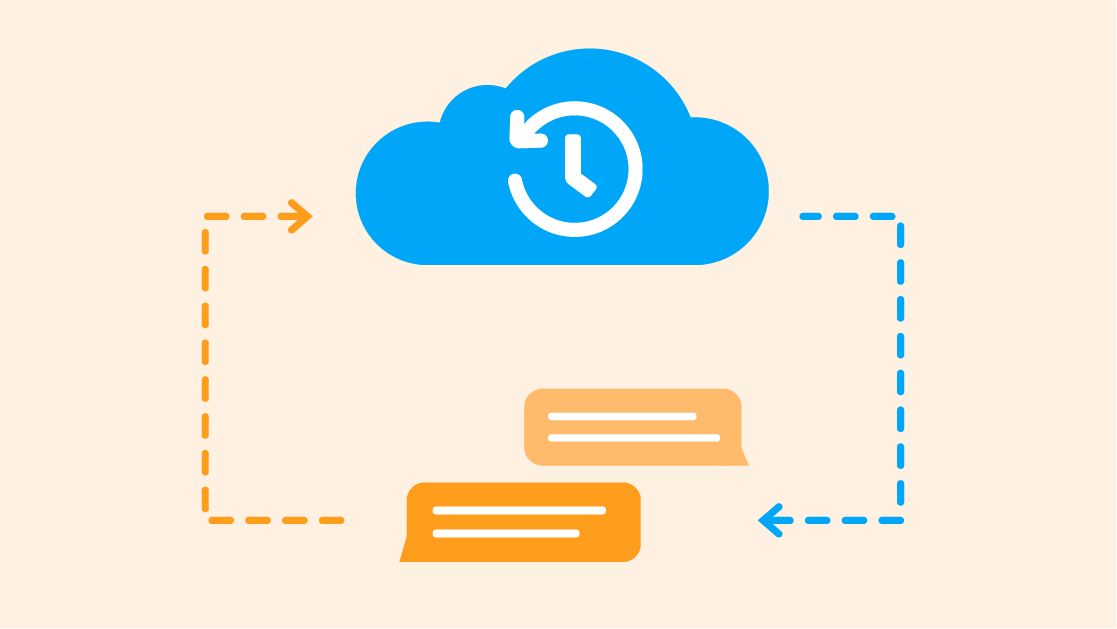Automated Managed offsite Backup For Beginners
Automated Managed offsite Backup For Beginners
Blog Article
Encrypted Remote Backup Windows 11 Case Studies
Due to its many benefits, cloud backup has grown in popularity over the past few years. This article will discuss the advantages of cloud backup and the necessity of it for both individuals and companies.
Enhanced data security is one of the key benefits of cloud backup. You can protect your data from physical harm, theft, and any other on-site disasters by storing it in the cloud. To protect and secure your data, cloud backup providers use effective encryption techniques.
With cloud backup, you can access your data whenever and wherever you want as long as you have an internet connection. With a few clicks, you can quickly retrieve and restore your files whether you're at home, at work, or while traveling.
High-performance Backup As A Service ROI Calculation

Cost-effectiveness: Buying expensive hardware, keeping it up, and adding more storage space are all common components of traditional backup methods. By providing scalable storage options that can be customized to your needs, cloud backup eliminates these costs. It is a cost-effective option because you can only pay for the storage you need.
Automatic Backups: The use of manual intervention is eliminated by the automatic backups offered by cloud backup services. To keep your data current at all times, you can set up scheduled backups at regular intervals. Time is saved, and human error is less likely as a result of this automation.
Disaster Recovery: Cloud backup makes sure that your data is secure and accessible in the event of a catastrophe like fire, flood, or hardware failure. It is simpler to quickly recover and restore your data because your files are stored off-site in various locations.
Secure Remote Backup And Recovery In a Nutshell
Scalability: Cloud backup can easily handle the increased volume of data as your storage requirements increase. Without any hassle or additional infrastructure investment, you can increase or decrease your storage capacity.
Version Control: You can why not look here access earlier versions of your files using cloud backup systems ' version control features. When working on collaborative projects or needing to go back to an earlier version of a document, this feature comes in especially handy.
Effective Collaboration: Even when team members are geographically separated, cloud backup enables seamless team collaboration. Everyone is working on the most recent version of the files because they can be shared and edited in real-time.
Reliable Enterprise Cloud Based Backup Solutions In 2024
Reduced Downtime: Data restoration frequently experiences significant downtime as a result of conventional backup techniques. Due to the quick and effective recovery of data, cloud backup allows you to reduce downtime. Your company's operations will continue without interruption as a result.
Compliance: Data storage and security are subject to specific regulatory requirements across many industries. In order to store and manage your data in accordance with legal requirements, site cloud backup providers abide by these compliance standards.
Reliability and Redundancy: Because cloud backup systems use redundant storage options, your data is stored on multiple servers. High availability and a lower risk of data loss are both ensured by this redundancy.
High-speed On Premise Cloud Backup Essentials

You can relieve yourself of the stress of managing and maintaining your own backup infrastructure by using cloud backup services, which simplify It management. By leaving the technicalities to the experts, you can concentrate on other crucial aspects of your business.
Increased Productivity: With cloud backup, you wo n't have to deal with hardware management or manual data backup. The time that is saved can be used more effectively, increasing productivity overall.
What's Important:
Streamlined Backup Solution For Files User Manual
- Cloud backup provides improved physical and data security as well as theft and damage protection.
- You can retrieve and restore files from anywhere thanks to its simple accessibility.
- Cloud backup does away with the need for pricey hardware acquisitions and ongoing maintenance.
- Automatic backups lower the risk of human error and guarantee that your data is always current.
- Cloud backup enables quick data recovery in the event of a disaster.
- Depending on your storage requirements, cloud backup systems can easily be scaled up or down.
Access to earlier file versions is made possible by version control, which also makes collaboration easier.
- During data restoration, cloud backup shortens downtime.
- Cloud backup providers guarantee compliance with industry-specific regulations.
- Redundant storage options reduce data loss risk and ensure reliability.
- Simplified It management enables you to concentrate on other essential business tasks.
- By eliminating manual backup procedures, cloud backup boosts productivity.
In conclusion, cloud backup has many benefits, such as improved productivity, easier access, lower costs, automatic backups, disaster recovery, scalability, version control, reduced downtime, compliance, and reliability. People and businesses can protect their data and make it accessible at all times by taking advantage of these advantages.
Report this page